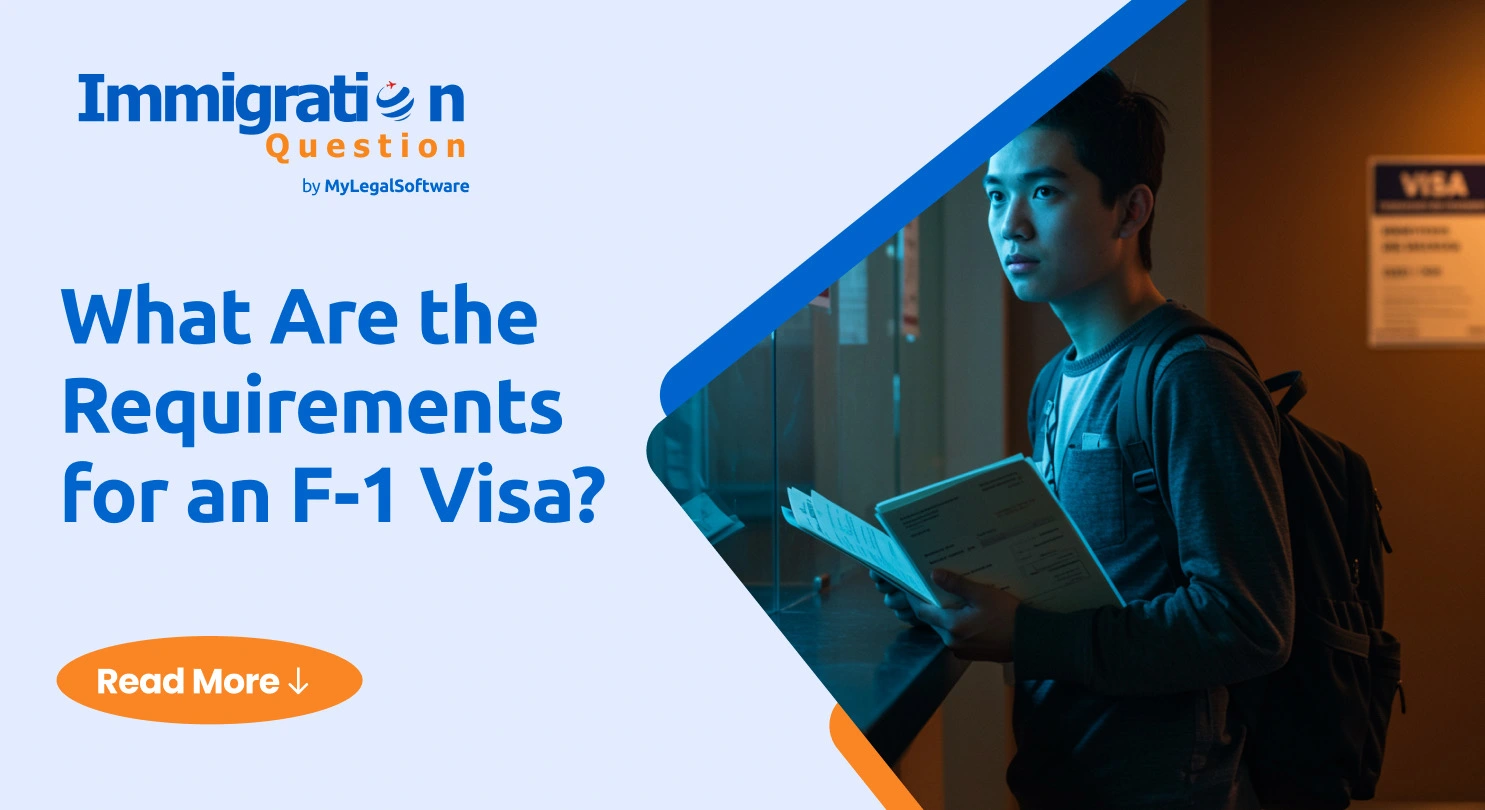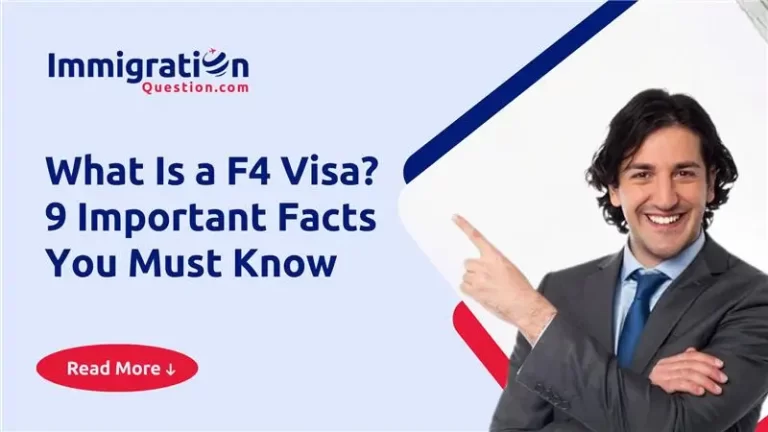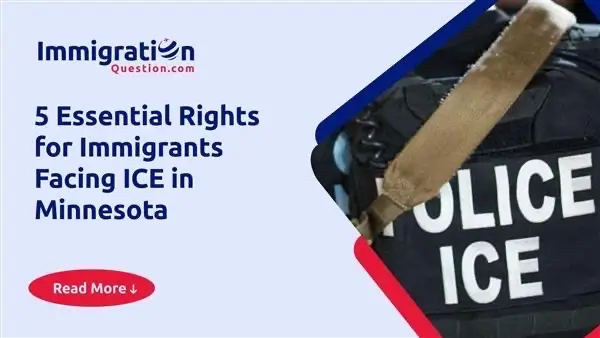The F-1 visa is a non-immigrant visa that allows international students to study in the United States. If you plan to pursue a degree, attend a language institute, or enroll in an academic exchange program, you may have to secure an F-1 visa.
Do you have an Immigration Question about the application process? This blog will answer it, and if you are still in doubt, an experienced Immigration Question attorney can guide you.
What Is an F-1 Visa?
The F-1 visa is granted to students who want to study full-time at an accredited U.S. academic institution. The institutions include:
- Colleges and universities
- High schools
- Language training programs
- Vocational schools (in some cases)
Students on an F-1 visa can remain in the U.S. throughout their studies and up to 60 days after completing their program unless they apply for Optional Practical Training (OPT), which allows them to work temporarily in the U.S.
5 Key F-1 Visa Qualifications
Applicants must satisfy several conditions to qualify for an F-1 visa, such as:
- Foreign Residence
You must have a permanent residence in your country and prove your intent to return after completing your studies. - Sponsoring Institution
You can only study at the academic institution listed on your visa (which issued your I-20 form). - Financial Support
You must show proof of sufficient funds to support yourself throughout your education without needing to work. - Ties to Home Country
Applicants must prove strong ties to their home country. Ties could include:
- A job offer post-graduation
- Assets like land, property, or vehicles
- Bank accounts
- Close family relationships
7. Academic Eligibility
Each university has its admission criteria. You must meet these before receiving your I-20 form, which is required for your visa application.
How to Apply for an F-1 Visa in 7 Steps
Here is a breakdown of the F-1 application process:
- Get Accepted by a SEVP-Approved Institution
Once accepted, the school will issue you a Form I-20. - Pay the SEVIS Fee
You need to pay the SEVIS I-901 fee before applying for the visa. - Complete the DS-160 Form
Fill out the Online Nonimmigrant Visa Application (Form DS-160). - Pay the Application Fee
A non-refundable application fee must be paid whether or not your visa is approved. - Schedule and Attend Your Interview
You must attend a visa interview at a U.S. Embassy or Consulate nearby. - Gather Supporting Documents
Required documents include:
- Valid passport (valid at least 6 months beyond your intended stay)
- I-20 form
- DS-160 confirmation page
- Application fee receipt
- Passport-sized photo
- Proof of financial resources
- Academic transcripts and test scores
7. Prepare for the F-1Visa Interview
You will be asked personal and academic questions. Be honest and confident in your responses.
What are the Questions to Expect in an F-1 Interview?
Expect questions such as:
- Why did you choose to study in the U.S. rather than your home country?
- Why did you choose this particular school?
- What is your English language test score?
- What is your academic performance like?
- How will you pay for your education?
- Do you intend to return to your home country after graduation?
- Do you have any relatives in the U.S.?
- Have you ever been to the U.S.?
- Have you ever been denied or banned entry from a Country?
Why Do F-1 Visa Denials Happen?
Visa denials often result from:
- Missing documentation
- Inadequate financial proof
- Failure to show strong ties to your home country
- Suspicious intent, such as not intending to return home
If your application is denied, you will receive a written explanation citing the section of U.S. immigration law under which your visa was refused.
Hire an Immigration Question lawyer to increase your chances of approval.
The F-1 visa offers international students incredible opportunities but comes with a strict application process. An Immigration Question attorney can assist you with the following:
- Preparing your application
- Gathering the correct documents
- Strengthening your case for approval
- Reapplying or appealing if your visa was denied
Visit Immigration Question today to get started.
Frequently Asked Questions About F-1 Visa
-
How long can I stay in the U.S. with an F-1 visa?
You can stay in the U.S. for the duration of your academic program and up to 60 days after program completion. If approved for Optional Practical Training (OPT), you may stay longer to gain work experience.
-
What documents do I need to apply for an F-1 visa?
You will need the following documents:
- Form I-20 from a SEVP-approved school
- Completed DS-160 form
- Valid passport
- Visa application fee receipt
- Passport-style photo
- Proof of financial support
- Academic transcripts and test scores
-
What happens if my F-1 visa is denied?
If your visa is denied, you will be given the reason in writing. Most rejections are due to insufficient documentation, insufficient finances, or lack of strong ties to your home country. In such cases, it is wise to hire an Immigration Question attorney to explore your options.
-
Can I work in the U.S. on an F-1 visa?
You may work on-campus part-time during the academic year and full-time during breaks. You will need specific authorization, such as OPT or CPT (Curricular Practical Training), for off-campus employment.
-
Do I need a lawyer to apply for an F-1 visa?
Although it is not mandatory, consulting an Immigration Question lawyer can be incredibly helpful, especially if you have been denied before. They can ensure your documents are in order and improve your chances of approval.
-
Where should I apply for the F-1 visa?
You should apply at the U.S. Embassy or Consulate in your home country. While you can apply in another country, it may be challenging to qualify.











